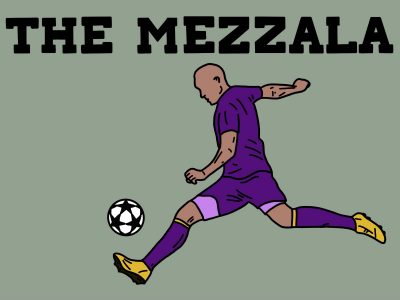
In the past few days, there have been rumors of Lionel Messi, a current Paris Saint-Germain player and arguably the best player of all time, joining Major League Soccer’s Inter Miami. Inter Miami currently sits sixth in the MLS table with a -9 goal differential. The club is based in one of the most tourist-heavy and desirable sites in the world: Miami.
The question emerges as to who in their right mind really believes that Messi will go to Inter Miami.
It is frankly embarrassing that the team’s owners even think that they have a chance, let alone be sure enough to say that they are “confident” they can get Messi to agree to a contract. The MLS has always been a sort of retirement home for washed-up, out-of-their-prime players from Europe. Messi is far from that, still operating at a world-class level at his current age. A move to Inter Miami of all places would signify the death of his career.
Messi seems to be destined for Barcelona when his contract is up, given they have the budget. Not only is it his boyhood club that he played for up until last year when they could not pay him, but it is also his home, the place where he has grown up and raised his kids. Not to mention the city is filled with passionate fans who would do anything for his return.
Now you are trying to tell me that Lionel Messi would leave behind both a return to Barcelona and more European glory to go to Inter Miami? They aren’t even the best team in the MLS.
Instead of competing for the Champions League, could you imagine Messi playing in the Concacaf Champions League against players such as 36-year-old Stefan Frei? I bet you have never even heard of the guy. Not to discredit his achievements, such as winning the Golden Ball in the league last year, but fans are aware that there are levels to this sport.
I expected Inter Miami co-owner David Beckham, a world-renowned player himself, to know that Messi signing with Inter Miami is not a feasible outcome. Just because Beckham and so many other old players went to the MLS at the tail-end of their careers doesn’t mean that Messi will too.
This brings me to the main topic — the development of soccer in the States. Why is the United States, a country that is so successful in so many different sports, so far behind in soccer? Why is the MLS, despite millions and millions of dollars being invested into it, simply a bad league? Why is the quality of American soccer so much lower than that of European football?
First, soccer in the United States is a sport — something that people do for fun and pursue further if they enjoy it. In Europe, however, football is a lifestyle. It is a culture that people practice, the air that people breathe and the passion in people’s hearts.
Football is ingrained into European citizens’ very being, and therefore they start cultivating their skills at a young age. They are surrounded by footballing minds, with former players and enthusiasts populating their families and friends.
In contrast, soccer in the United States is something that one must seek. You have to sign up for a team and pay unreasonable amounts of money just to be surrounded by people who don’t know what it takes to bring you to the next level. In addition to this, so many other sports are prevalent in the United States, which sweeps up athletes who could be talented soccer players into other disciplines.
Furthermore, professional football in Europe has the potential to start at an incredibly young age. We see talented players in Europe debuting at the age of 15 years old. In the United States, soccer players have to go through college before even having a chance on a pro team. Imagine the difference between Erling Haaland, a 22-year-old who has been playing professionally for years, versus a 22-year-old American who is straight out of Division 1 soccer. The discrepancy in experience and skill is enormous, and therefore catastrophic for the development of young soccer players in the United States.
As a result, the leagues in the United States are lackluster and do not appeal to any players besides those who want a larger paycheck or can’t compete in the top leagues anymore. If the MLS wants to better its reputation to the level where it can even be spoken in the same sentence as players like Messi, the whole soccer culture in the United States must undergo serious reform.



















































































































